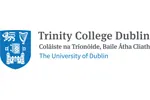About Dental Science, BA - at Trinity College Dublin
This five-year programme is designed to ensure that graduates can safely and effectively deliver the full range of primary dental care, including prevention, diagnosis and treatment of oral and dental diseases. Treatment involves areas such as the restoration of damaged teeth, the correction of irregularities, the replacement of missing teeth and surgical procedures such as the removal of teeth.
Is this the right course for me?Yes, if healthcare in general interests you and if you would like to specifically focus on oral healthcare and its impact on individuals. The nature of dentistry makes it essential that you also have an ability to build a caring and professional relationship with patients, co-workers and the wider community. It is also desirable that you enjoy undertaking work that requires considerable attention to detail with small margins for error. The course is long (five years) and intense and the academic year is longer than for students of other disciplines.
Why study at Trinity College?The bright and modern refurbished and extended Dental School was opened in 1998 and the building received two architectural awards in 1999. The clinical facilities are of a very high standard with emphasis on the use of information technology throughout the building. The curriculum is delivered in a problem-based learning (PBL) format, which aims to provide you with the skills to continuously evaluate and update your knowledge and clinical practice through your professional career. The class sizes are small ensuring that staff and students are well known to each other.
Course contentThe course is delivered mainly through small group tutorials that consist of student-led discussions on topics and problems presented and facilitated by staff. These topics tie in with the development of practical and clinical skills you will develop in laboratories and clinics. Lectures, demonstrations, simulations, audiovisual and e-learning opportunities are also provided as appropriate. Students provide patient care under the strict supervision of dentally qualified staff from the second year onwards.
Problem-based learningThrough PBL information is not presented in separate disciplines e.g. physics, chemistry, anatomy, physiology, biochemistry, which would require the student to integrate each of the separate strands at some later date. Problem-based or problem-centred learning provides students with structured problems set to meet specified learning objectives. Students organise themselves (under supervision) to undertake research to find out about how to achieve the learning objectives. In the first two years the basic sciences are integrated into the problems. An additional benefit of PBL is that student learning occurs in a context that approximates the future situation in which the knowledge will be applied.


